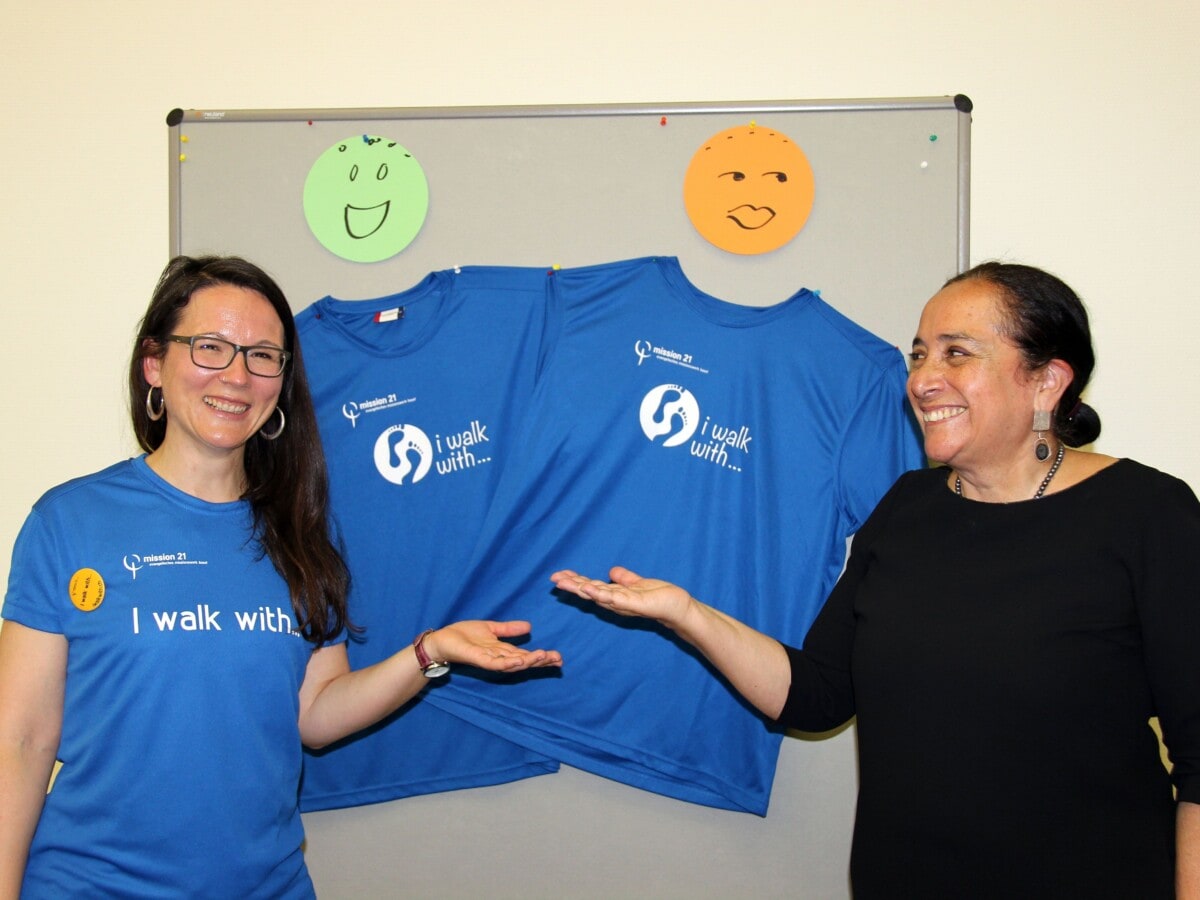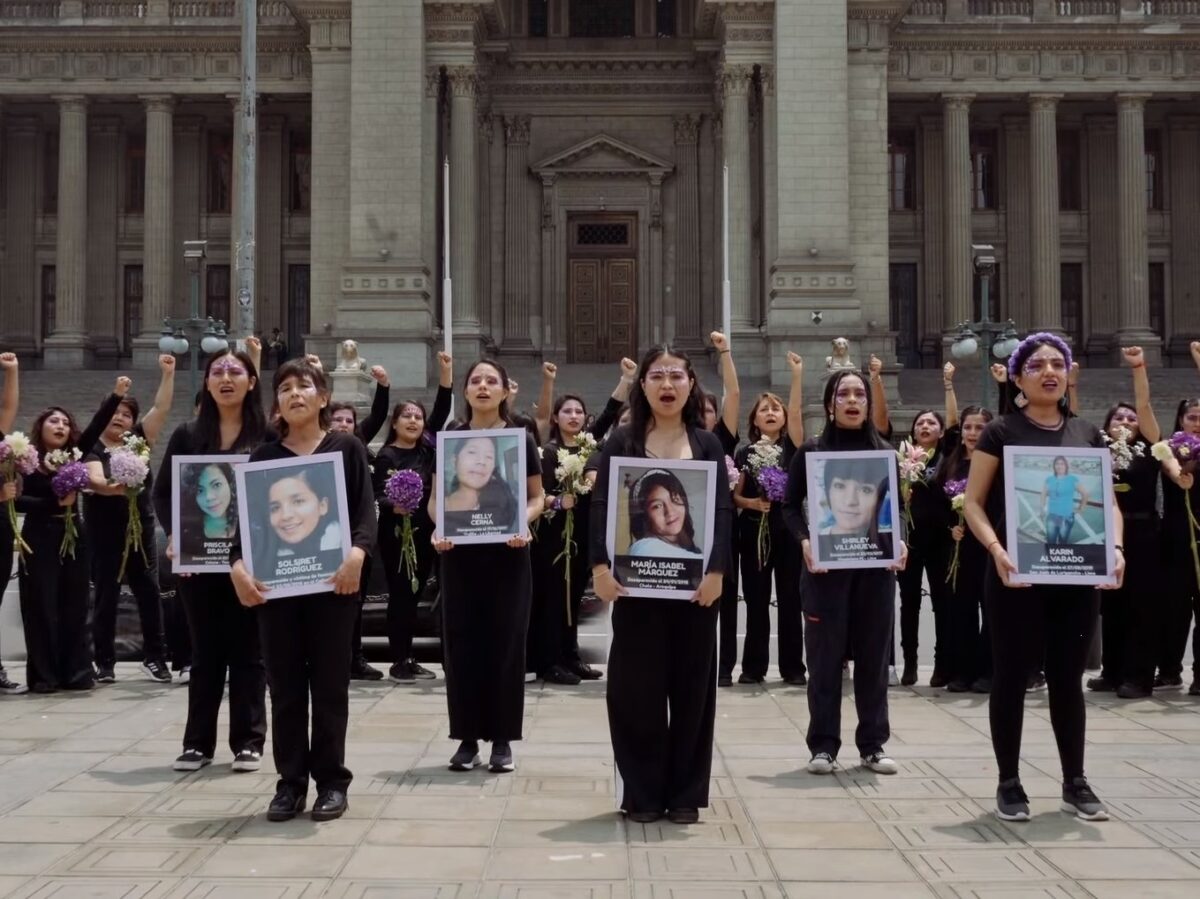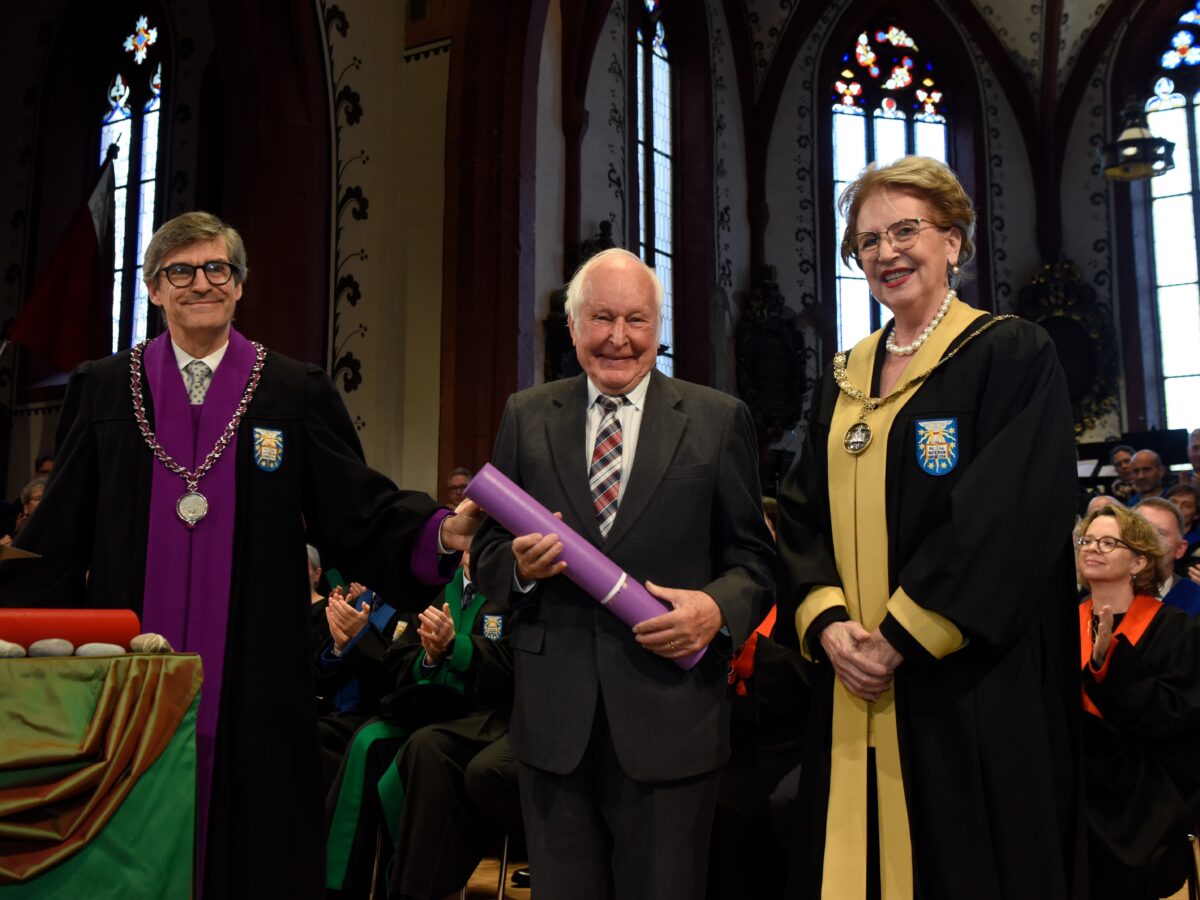Mission 21 kicked off this year's Synod Week with the Women's Presynod. For the first time, the Women's Pre-Synod took place primarily digitally. And it marked a change: Dr. Barbara Heer was officially introduced as the new head of the Women and Gender Unit, succeeding Josefina Hurtado.
The Women's Network of Mission 21 met in virtual space on Wednesday, June 9, 2021, due to Corona. Only a few people were actually present in the Mission House. It was all the more impressive that numerous women from four continents gathered on the screens. The international network of Mission 21, which is committed to gender justice worldwide, has grown steadily in recent years.
In her eight years as head of the Women and Gender Unit, Josefina Hurtado has continued to build the network, introducing new tools and tasks to anchor women's human rights more broadly in partner countries.
Barbara Heer takes over management
At the handover ceremony, Barbara Heer symbolically received the T-shirt "I walk with...", which has been worn by an activist from one of the partner countries in each of the past years. The T-shirt symbolizes the path towards more gender justice, which one does not have to walk alone, but where many others help to carry the challenges on this path together.
In welcoming the participants, Jochen Kirsch, Director of Mission 21, addressed the change in the work of the staff unit. Gender justice is now to be achieved in particular by means of Gender mainstreaming be addressed. This is to be anchored even more strongly in all projects in the global South as well as in the educational programs of Mission 21 in Switzerland.
Challenges in the partner countries
From the various partner countries, the women's and gender chairs then reported on the current challenges, setbacks, and progress made with regard to gender equity.
The Corona pandemic has led to a deterioration in the status of women worldwide. Domestic violence in particular has increased massively. In Indonesia, moreover, many women have lost their jobs because factories have had to close. In Latin America, too, there are more people affected by extreme poverty. Those affected are mainly women and children.
Tireless commitment
In Asia, our partner organizations provided emergency relief, organized advocacy workshops and trainings focused on mental and reproductive health, and strengthened collaboration with other organizations and women's networks.
Our partners in Africa used workshops and training sessions to sensitize participants to gender discrimination and educate women about their rights. Marriage of young girls increased during the pandemic, and inequality in schooling increased.
In Latin America, our partner institutions provide support and advice for women who find themselves in difficult situations. In workshops, women are encouraged to address discrimination and raise their voices. Because violence against women has a system. Women are prevented from speaking out about their experiences.
Tasks in Switzerland
In Switzerland, too, there is still work to be done. In the church in particular, the work is not over when it comes to equality. Here, too, the pandemic has set back equality efforts; unpaid care work and wage inequality are still unsolved problems.
The network of committed women and men working for gender justice will continue to grow. Everyone took this confidence with them - despite many setbacks and major challenges. Barbara Heer therefore emphasized at the end of this Women's Presynod: "Only together can this important work of the Women and Gender Unit be continued".
Text and photo: Meret Jobin
► More about the Women and Gender specialist unit of Mission 21






